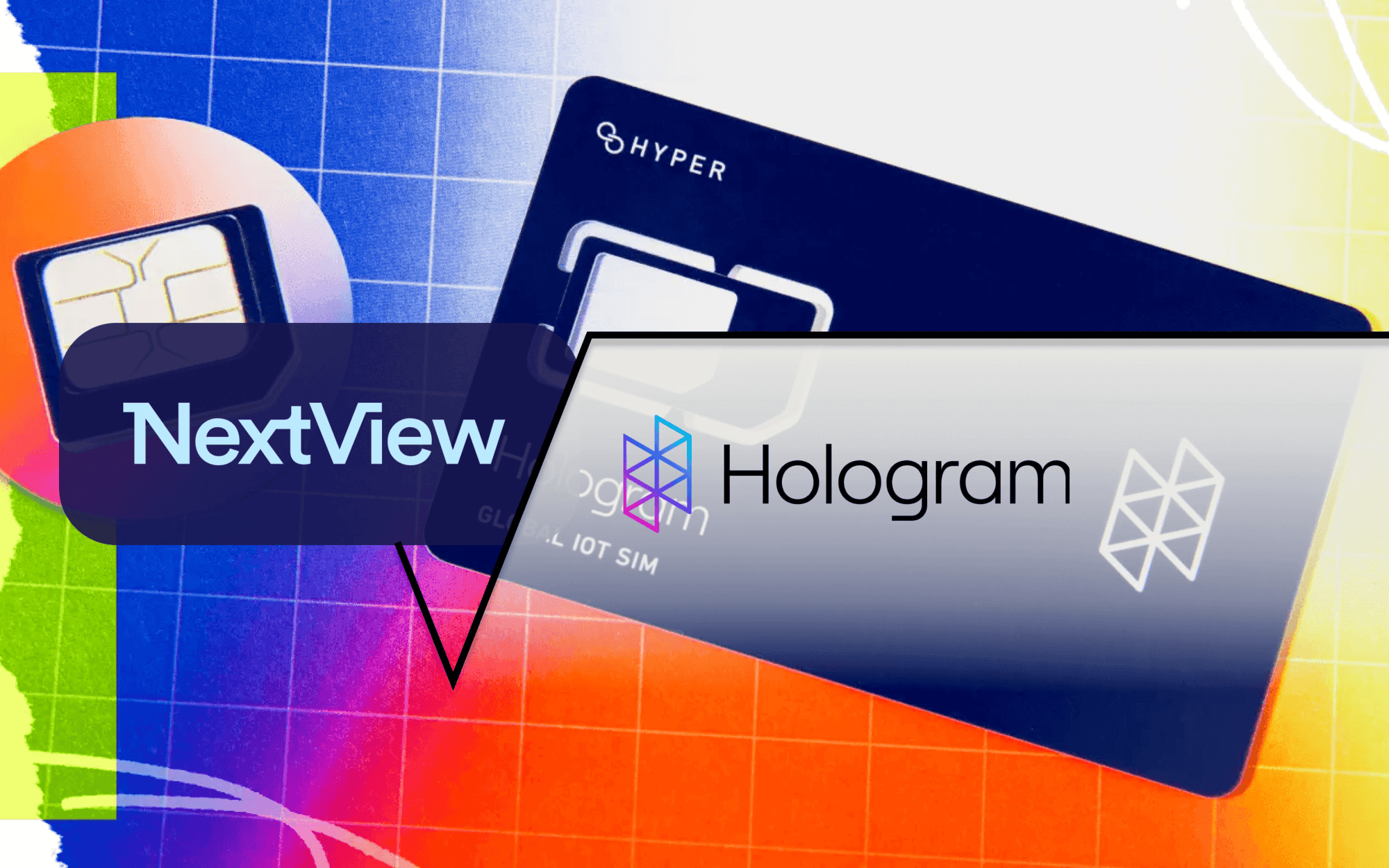


Hologram: Everyday IoT Reaches Scale
Today Hologram announced their $65M Series B round of funding led by Tiger Global. Hologram is a leader in enabling large-scale connectivity of internet of things (IoT) devices, across the globe with 400+ wireless carriers, all through a robust but easy-to-use API.
The Hologram story is near and dear to our hearts here at NextView for a number of reasons. We first invested in co-founders Ben Forgan & Pat Wilbur in early 2015, when NextView led a $1.3M pre-seed round for the company (Hologram was fka Konekt). They were wrapping up participation in an accelerator program and Ben was planning to move back to Chicago to build the company there, having previously worked at Groupon before moving on to other tech companies in Asia, as well as a brief time in California.
Here in 2021 startups operate in a more distributed fashion earlier in their lifecycle, a trend which preceded COVID but certainly was accelerated by the remote work environment for knowledge workers brought on by the pandemic. And early-stage VC investors have increasingly ventured beyond their backyards of SF, NYC, and Boston to more actively invest in (and in some cases relocate to) places like Miami, Austin, Chicago, Seattle, and other cities. But 5-6 years ago, building a critical mass of talent and attracting capital wasn’t as easy outside of the top startup hubs. Hologram has grown to hundreds of employees, thousands of customers, and attracted substantial capital all from its home base in Chicago. So while that may have been novel when the company started, it’ll likely become more commonplace going forward.
Hologram is also an example of a B2B platform company, of which we’ve invested in many over the years here at NextView. We champion founders redesigning the Everyday Economy, and to many, that brings to mind consumer businesses in particular. But some of the most impactful companies in finance, work, transportation, and other major categories of everyday life are B2B businesses that are shaping these sectors both directly and indirectly. IoT devices impact everyday people, from the e-bike or scooter rental that gets a commuter to where they’re going to a tracking device in a shipping container for high-value medicines to sensors that help farmers grow the food we eat.
Lastly, Hologram is a company we appreciate in that the founders have made a consistent bet on being “long term market right”. What I mean by that is that many early-stage businesses, especially ones who play a meaningful role in shaping or designing a new category, are explicitly staking the company’s success, not only on their own execution but also on new markets that may be growing and evolving rapidly in parallel with the startup’s own evolution. Near-term product development and commercial traction are still important goals, but being profligate with capital or time early on or being inconsistent about your vision & strategy makes it harder to be a meaningful force in a market in the years to come as that market grows and matures.
For Hologram this meant being heads down primarily focused on product development in early years, and then only scaling sales and marketing as the market opportunity across IoT really blossomed. Now connected devices are widely deployed at scale across transportation, agriculture, industrial sensors, and other categories, and 5G will likely provide a substantial tailwind for the entire IoT industry. Prior to this Series B, the company had already achieved meaningful scale but had raised only $15M in capital to date. Building a transformative company usually takes 7-10+ years, and being long-term market “right” is often as much a determinate of success as the initial small-scale traction.
We’re excited for co-founders Ben & Pat and the whole Hologram team, as they continue to write the next chapters of Hologram’s story.



